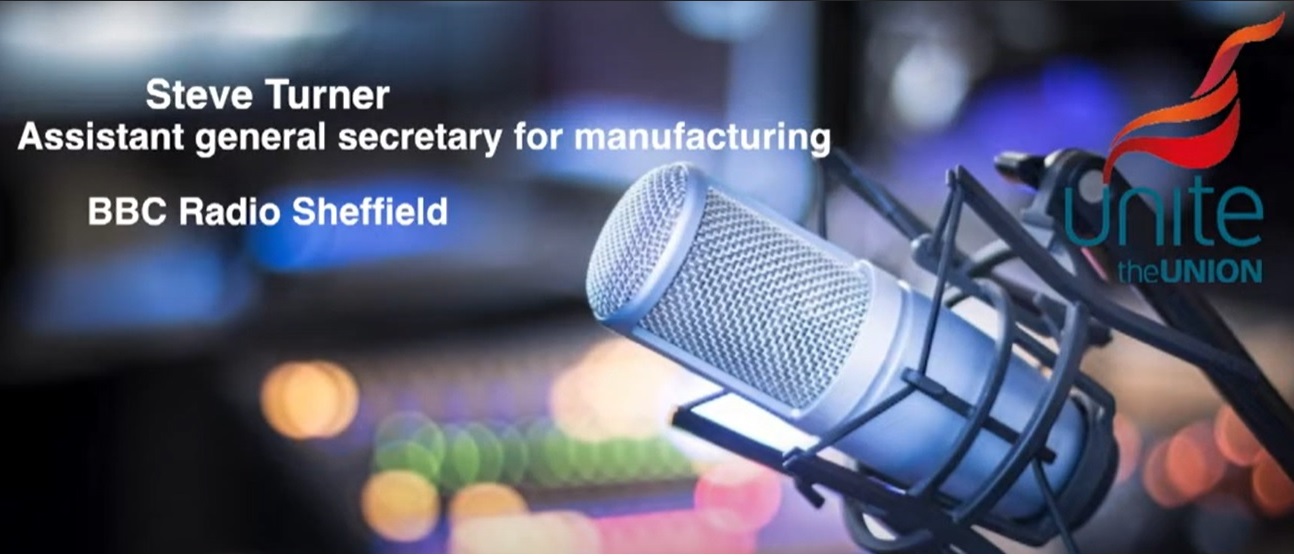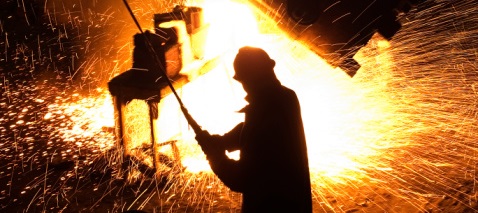â€Zombie’ companies threaten millions of jobs
â€Zombie’ companies in China are selling goods lower than it costs to produce them are a threat to jobs in the UK and the rest of Europe, warned Unite assistant general secretary Tony Burke as he called on European trade unions to oppose the granting of market economy status to China.
Speaking at the IndustriALL Europe congress in Madrid yesterday (June 9), Tony Burke warned that granting market economy status to China would open the â€floodgates’ to a â€tsunami’ of cheap Chinese steel and be disastrous for workers in manufacturing in the UK and across Europe.
“We do this not to attack Chinese workers and their future, but because there is a very clear danger that granting market economy status to China will have a massive impact on manufacturing in the UK and rest of Europe,” Burke said.
“’Zombie’ companies in China are producing goods lower than it costs to produce them with no end in sight to this over production and dumping. This is most acute in the steel industry where cheap Chinese steel has had a significant impact on the UK steel industry and has created job losses and significant uncertainty.”
Burke pointed out that the steel industry wasn’t the only sector being hit by cheap Chinese imports.
“In the tyre industry we have seen cheap Chinese truck tyres dumped on the UK market and sold at £300 less than the premium EU manufactured tyres,” he said.
“Our papermaking industry is now subject to cheap imports of paper and there are grave concerns as to the effect that market economy status will have on the automotive parts sector and other areas such as ceramics.
Urging European unions to join the growing voices of opposition, Tony Burke noted that it is not just Unite in the UK which is opposed to market economy status for China.
“The British TUC has expressed its opposition, the European TUC, unions in America and Canada, as well as the European parliament which recently voted against market economy status for China,” he explained.
“A decision to grant market economy status to China would be disastrous for workers in the UK and Europe.”
He pointed to a recent Economic Policy Institute report showing that between 1.7m and 3.5m European Union jobs at risk by curbing the inability to impose tariffs on dumped goods and thus allowing Chinese companies to undercut domestic production by flooding the EU with cheap goods.
“We have a government that appears happy to sell off anything that moves to China and therefore we have to have a united response,” Burke said.
Over the coming months the European Union is due to decide whether to grant market economy status to China. The move has been triggered by the fact provisions written into China’s protocol, when it acceded to the World Trade Organisation (WTO) 15 years ago, kick in on December 11, 2016.
Currently, China is not considered a market economy in EU anti-dumping proceedings, meaning the EU uses data from another market economy to calculate anti-dumping duties when it imposes fines on China.
If China is granted market-economy status it would make it more difficult to impose steep tariffs on Chinese goods.
IndustriALL Global Union represents 50m workers in 140 countries in the mining, energy and manufacturing sectors and is a force in global solidarity taking up the fight for better working conditions and trade union rights around the world.
 Like
Like Follow
Follow


